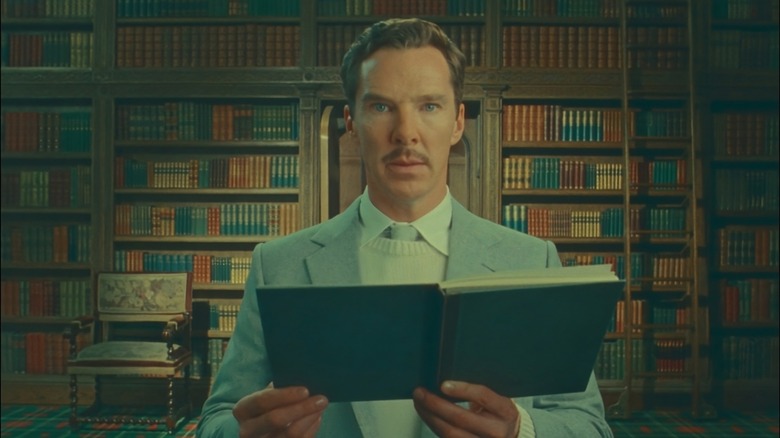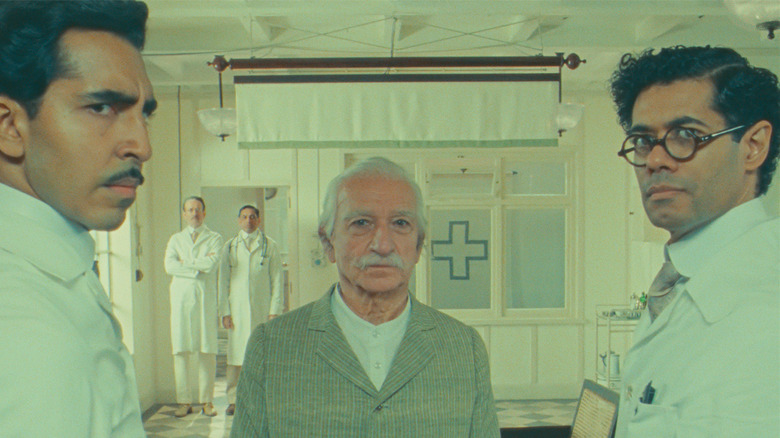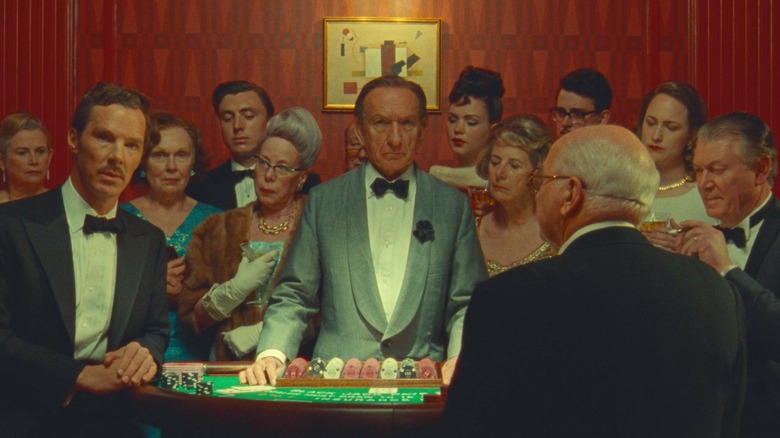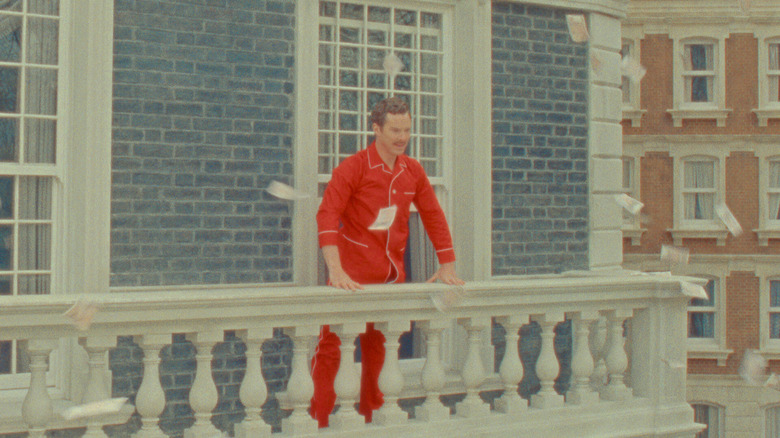Why It Took Wes Anderson Over A Decade To Make The Wonderful Story Of Henry Sugar
Lots of filmmakers have tried to adapt Roald Dahl's short story "The Wonderful Story of Henry Sugar" over the past decade, but they have run into a brick wall — the story has been set aside for Wes Anderson for years. Anderson is no stranger to translating the British author's work for the big screen, having previously adapted "The Fantastic Mr. Fox" into a highly successful and widely acclaimed stop-motion animation. The director actually acquired the rights to "Henry Sugar" more than ten years before he finally made it. But why did it take him so long to produce the Brechtian masterpiece that is this thirty-nine minute short film?
It was through the making of "Fantastic Mr. Fox" that Anderson got to know Dahl's family, including his widow, Felicity "Liccy" Dahl. "I had some conversations with them and I think Liccy probably said, 'Is there another one you like?'" he recalled in an interview with Vogue. "So 'Henry Sugar' was set aside for me."
Lots of filmmakers have taken stabs at Dahl's work, so Anderson only wanted to adapt it if he had a unique approach. With "Fantastic Mr. Fox" he had a clear vision — stop-motion animation. With "Henry Sugar," he wanted to have a solid concept in mind rather than pitching a straightforward cut-and-paste narrative adaptation.
"It's not necessarily that I think Dahl is the most adaptable writer, although he might be one of the most adapted writers ever, maybe the most," he elaborated. "I genuinely would rather take the inspiration of someone and combine it with something else that might be informed by what I've read that I can create my own version from." For the record, William Shakespeare, Agatha Christie, and Stephen King all have Dahl beat.
He never knew how to do it
So the Dahl family set "Henry Sugar" aside for Anderson, and it stayed on the back burner for over 10 years. Now, why did the filmmaker delay the project for so long? Well, here it comes.
"I never knew how to do it," the "Moonrise Kingdom" director confessed to The New York Times. "I just didn't see a way for me to do it that isn't in his personal voice. The way he tells the story is part of what I like about it."
The story of Henry Sugar is told through theatrical narration and camera addresses, through which Anderson is able to incorporate the prose directly into the film. He also decided he would make "Henry Sugar" into a short film, to be released with a set of other short films that were also adapted from Dahl's stories. However, Anderson wanted to maintain the same storytelling method with the same troupe of actors in all four films.
"I went, 'Well, which other stories seem suited to this method?' It felt suited to 'Henry Sugar,' but maybe not to every story," the Houston-born filmmaker explained to Deadline. "And so, I kind of found ones that I thought could be sort of 'performed'. And so that's how I picked the others."
Why Anderson's unconventional approach to adaptation works
This theatrical approach is highly contrary to the immersive realism of the average contemporary film, but it fits right into Anderson's filmography of highly stylized camerawork and mise-en-scene.
"When you watch a movie, generally you're seeing someone try to create an illusion of something happening, because in fact right off the frame is a light and a guy with a microphone," the filmmaker explained to The New York Times. "But for me, the theatrical devices really happen. So I think to some degree, I like the authenticity that a theatrical approach can bring. It's a way to tell the story where there's a little sliver of the documentary in it, even though most of what we're doing is the exact opposite of a documentary."
Through his theatrics, Anderson accesses what Herzog calls the "ecstatic truth" of stylized cinema. "There is just a very shallow truth in facts," the "Grizzly Man" director told The New Yorker. "Otherwise, the phone directory would be the Book of Books."
Henry Sugar isn't the only Dahl short story Anderson is adapting
The three short films accompanying "Henry Sugar" in Anderson's adaptations are "The Swan," "The Rat Catcher," and "Poison," all based on Dahl's stories of the same names. "The Swan" is available on Netflix on September 28, "The Rat Catcher" on September 29, and "Poison" on September 30. Anderson shot them all together last summer with the same company of actors that includes Ralph Fiennes, Benedict Cumberbatch, Ben Kingsley, Richard Ayoade, Dev Patel, and Rupert Friend.
Anderson considered a number of different stories to adapt, but a few that would have been cohesive with the project didn't make the cut. Admittedly the filmmaker may have worn himself out a bit with the undertaking of "Henry Sugar," which is a longer story than the others and has a greater diversity of location, costumes, and characters.
"I mean, there's another story in 'The Rat Catcher' called 'The Hitchhiker,' which is probably very suitable also, but something was just too familiar about it," he told Deadline. "Then there are others that would be too long and complex, and so, after doing 'Henry Sugar,' I thought, "Let's just make some little ones, not another 40-minute one."
Viewers should expect the next few short films to be a bit more bite-sized than "Henry Sugar." However, with a star-studded cast of talented actors and a whimsical, accomplished filmmaker like Anderson adapting such rich source material, there's sure to be more fun in store.



